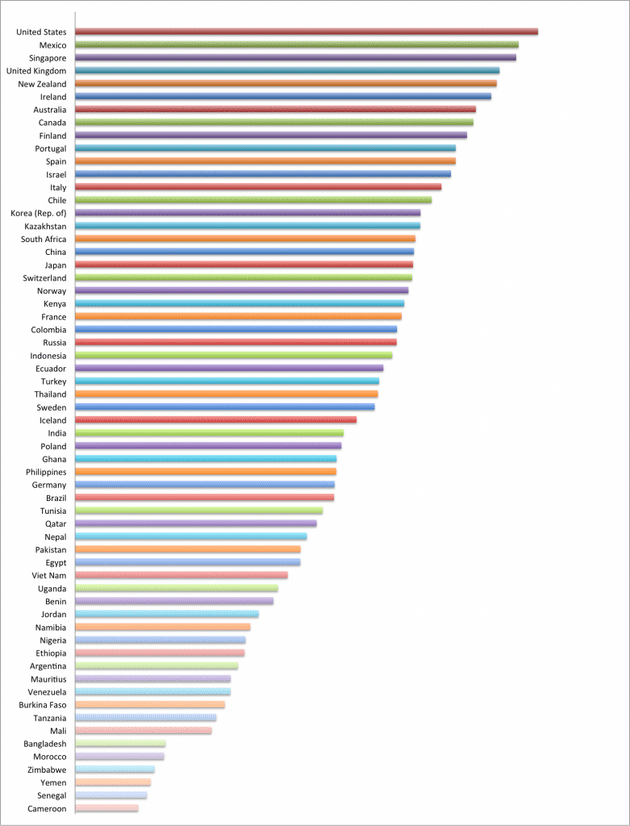Open Data Index – Where’s Belgium?
In September, the World Wide Web Foundation published the first version of the Open Data Index. It is part of the Web Index, which measures topics such as communications infrastructure, policy, content availability, use of social networks, business use, freedom of speech and e-participation, based on over 80 indicators.
14 of those 80 indicators look at open data:
- Government use of open licenses
- publication of trade data on the Web
- publication of fiscal data on the Web
- Publication of health data on the Web
- Publication of education data on the Web
- Publication of transport data on the Web
- Publication of census data on the Web
- Publication of map data on the Web
- Tax filing via the Web
- Information on contacts in government departments
- Publication of crime data on the Web
- Ease of access of government data
- Extent of Open Government Data Initiative
- Creation of new services based on government data
These are the results for the first year:
The results and methodology of the study have been severely criticised by some Spanish organisations, who felt that Spain was wrongly portrayed as a leader in open data. They complained about how the results were based on perception of only one person. In fact, the Web Foundation based its findings on a combination of existing data from other sources and a questionnaire for experts in each country.
While an in depth comment on the study and the indicators would require a more thorough review, some first thoughts on the survey:
- Most of the indicators are related to the availability of data, rather than the openness. As the Spanish critique says, maybe it shouldn’t be called an open data index…
- Granted, it is difficult to find good indicators relating to the availability of data, licences, etc. However, a question like “To what extent are government agencies publishing information on the web using open licenses? [1 = not at all; 10 = extensively]” ‘(for indicator 1) leaves a lot of room for different interpretations and perceptions. What is extensively? Does it mean that a lot of agencies publish their data under an open licence, or is it sufficient that a few organisations publish a lot of datasets? This raises the question on what indicators could work for measuring open data. Any ideas?
- 61 countries were measured, from the US to Cameroon. Where is Belgium?! It seems almost ludicrous that sufficient data would be available for a considerable number of developing countries, and not for Belgium, or that no Belgian experts could be found to fill out the survey. Does this mean that Belgium is not even a blip on the open data radar? Something to think about, I would say…
